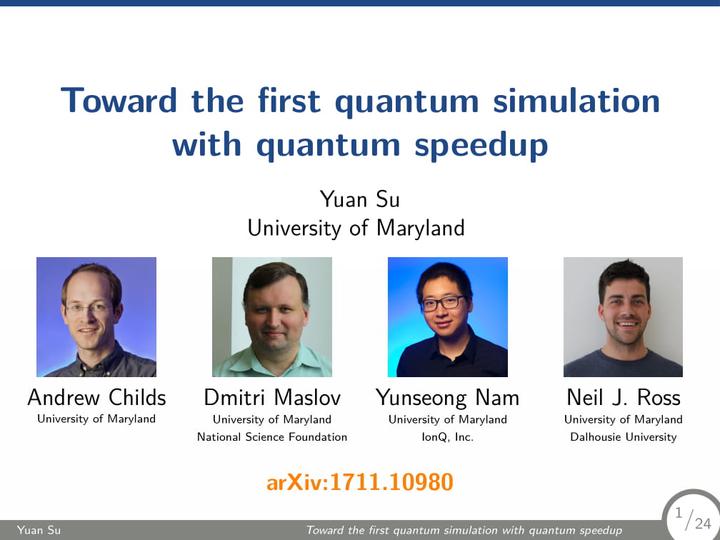Toward the first quantum simulation with quantum speedup (QIP 2018)

Abstract
With quantum computers of significant size now on the horizon, we should understand how to best exploit their initially limited abilities. To this end, we aim to identify a practical problem that is beyond the reach of current classical computers, but that requires the fewest resources for a quantum computer. We consider quantum simulation of spin systems, which could be applied to understand condensed matter phenomena. We synthesize explicit circuits for three leading quantum simulation algorithms, employing diverse techniques to tighten error bounds and optimize circuit implementations. Quantum signal processing appears to be preferred among algorithms with rigorous performance guarantees, whereas higher-order product formulas prevail if empirical error estimates suffice. Our circuits are orders of magnitude smaller than those for the simplest classically-infeasible instances of factoring and quantum chemistry, bringing practical quantum computation closer to reality.